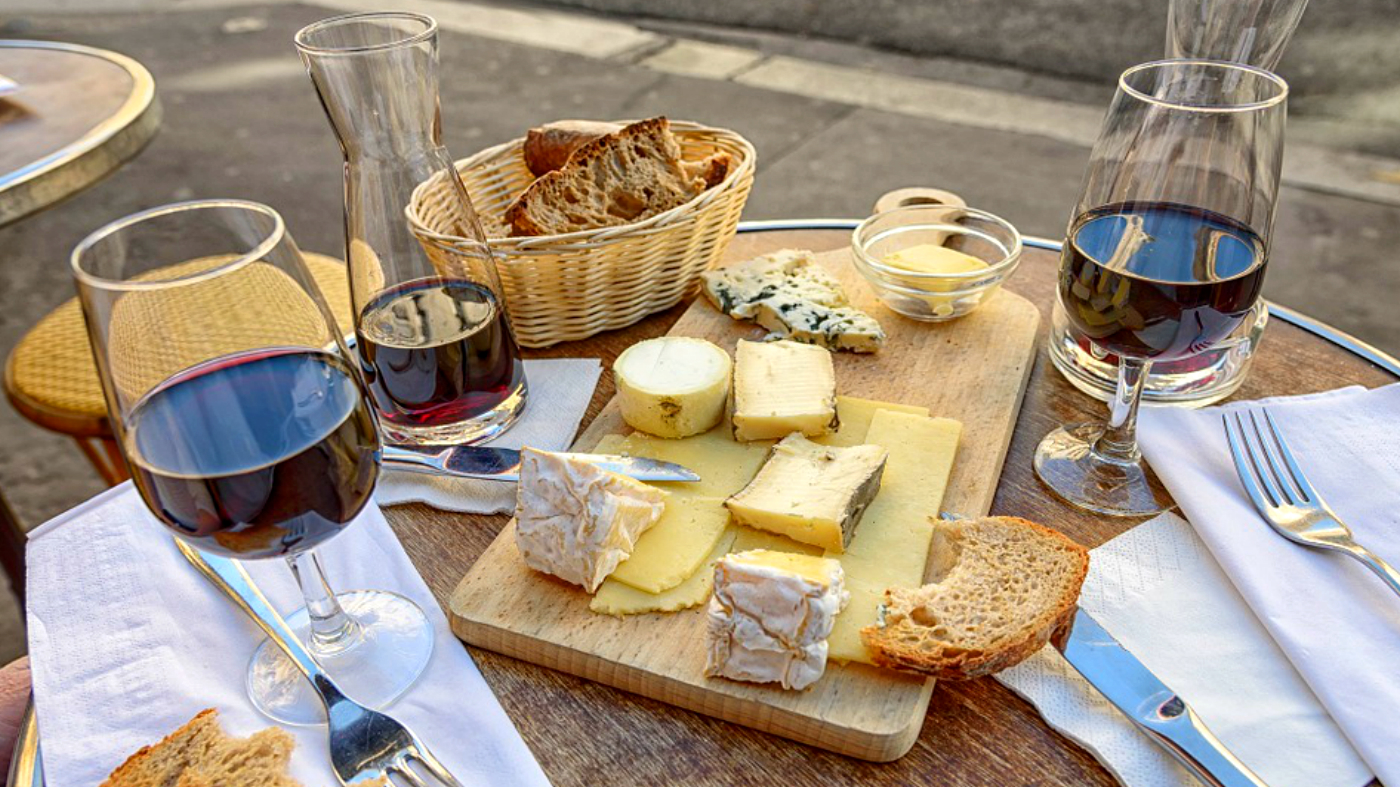Study proves eating cheese makes wine taste better
Dinner-party duo get scientific seal of approval – and there's good news if you're offering guests cheap plonk

A free daily email with the biggest news stories of the day – and the best features from TheWeek.com
You are now subscribed
Your newsletter sign-up was successful
Eating cheese can enhance the bouquet and flavour of your wine, researchers have found.
The two have long been a staple of dinner parties and social gatherings, but now have recognised scientific backing from the Centre for Taste and Feeding Behaviour in France – where else?
Thirty-one wine aficionados were asked to sample glasses of pacherenc, sancerre, burgundy and madiran both on their own and in various combinations with four cheeses – soft and hard cow's milk cheeses, a goat's cheese and a blue Roquefort. They were then asked to report on their perceptions of the taste and aroma.
The Week
Escape your echo chamber. Get the facts behind the news, plus analysis from multiple perspectives.

Sign up for The Week's Free Newsletters
From our morning news briefing to a weekly Good News Newsletter, get the best of The Week delivered directly to your inbox.
From our morning news briefing to a weekly Good News Newsletter, get the best of The Week delivered directly to your inbox.
The results "showed cheese changed all the wines, and made most more enjoyable", the Daily Telegraph reports, adding that "none of the four cheeses had a negative impact on any of the wines".
Even better for a host trying to shift a bottle of sub-par plonk, the scientists also found cheese tended to reduce participants' perception of a wine's astringency – that dry, puckered feeling on the roof of the mouth that often results with cheap vino.
Red wines tended to be especially improved by a cheese accompaniment, with drinkers of the full-bodied burgundy and madirans saying they noticed a stronger aroma of red fruits after eating cheese.
Notably, the choice of cheese did not appear to matter. Lead researcher Mara Galmarini told The Times all four had "the same effect" when paired with the wines.
A free daily email with the biggest news stories of the day – and the best features from TheWeek.com
"In short, when having a plate of assorted cheeses, the wine will probably taste better no matter which one they choose," she said.
Past studies into the connection have posited that the fat in cheese acts as a lubricant and counteracts the often unpleasant dry sensation left in the mouth by tannin-rich wine.